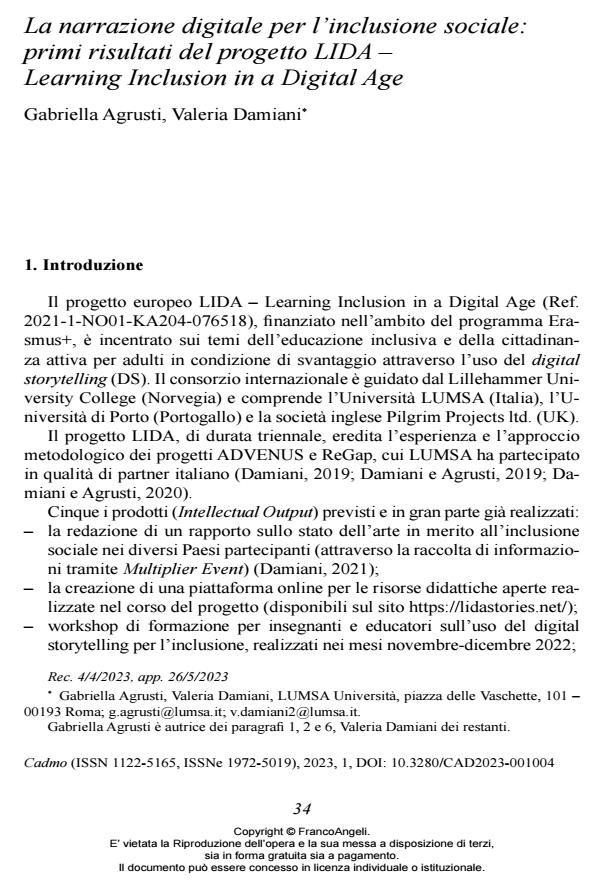Digital storytelling for social inclu- sion: first results of the LIDA project - Learning Inclusion in a Digital Age
Journal title CADMO
Author/s Gabriella Agrusti, Valeria Damiani
Publishing Year 2023 Issue 2023/1
Language Italian Pages 16 P. 34-49 File size 211 KB
DOI 10.3280/CAD2023-001004
DOI is like a bar code for intellectual property: to have more infomation
click here
Below, you can see the article first page
If you want to buy this article in PDF format, you can do it, following the instructions to buy download credits

FrancoAngeli is member of Publishers International Linking Association, Inc (PILA), a not-for-profit association which run the CrossRef service enabling links to and from online scholarly content.
The European project LIDA Learning Inclusion in a Digital Age (Ref. 20211NO01KA204076518), funded under the Erasmus+ programme, addressed the topics of inclusive education and active citizenship for dis- advantaged adults through the use of digital storytelling. This article pre- sents the evaluation process of the LIDA digital resources realized during the training workshops for teachers and educators on the use of digital storytell- ing, which involved a variety of target groups (economically disadvantaged adults, migrants, students). The results highlighted the powerful potentials of digital storytelling in education and laid the groundwork for a more ex- tensive use of such approach with the aim of fostering social cohesion and ultimately promoting the inclusion of vulnerable individuals.
Keywords: digital storytelling, social inclusion, migrants, refugees, vulnerable people.
Gabriella Agrusti, Valeria Damiani, La narrazione digitale per l’inclusione sociale: primi risultati del progetto LIDA - Learning Inclusion in a Digital Age in "CADMO" 1/2023, pp 34-49, DOI: 10.3280/CAD2023-001004